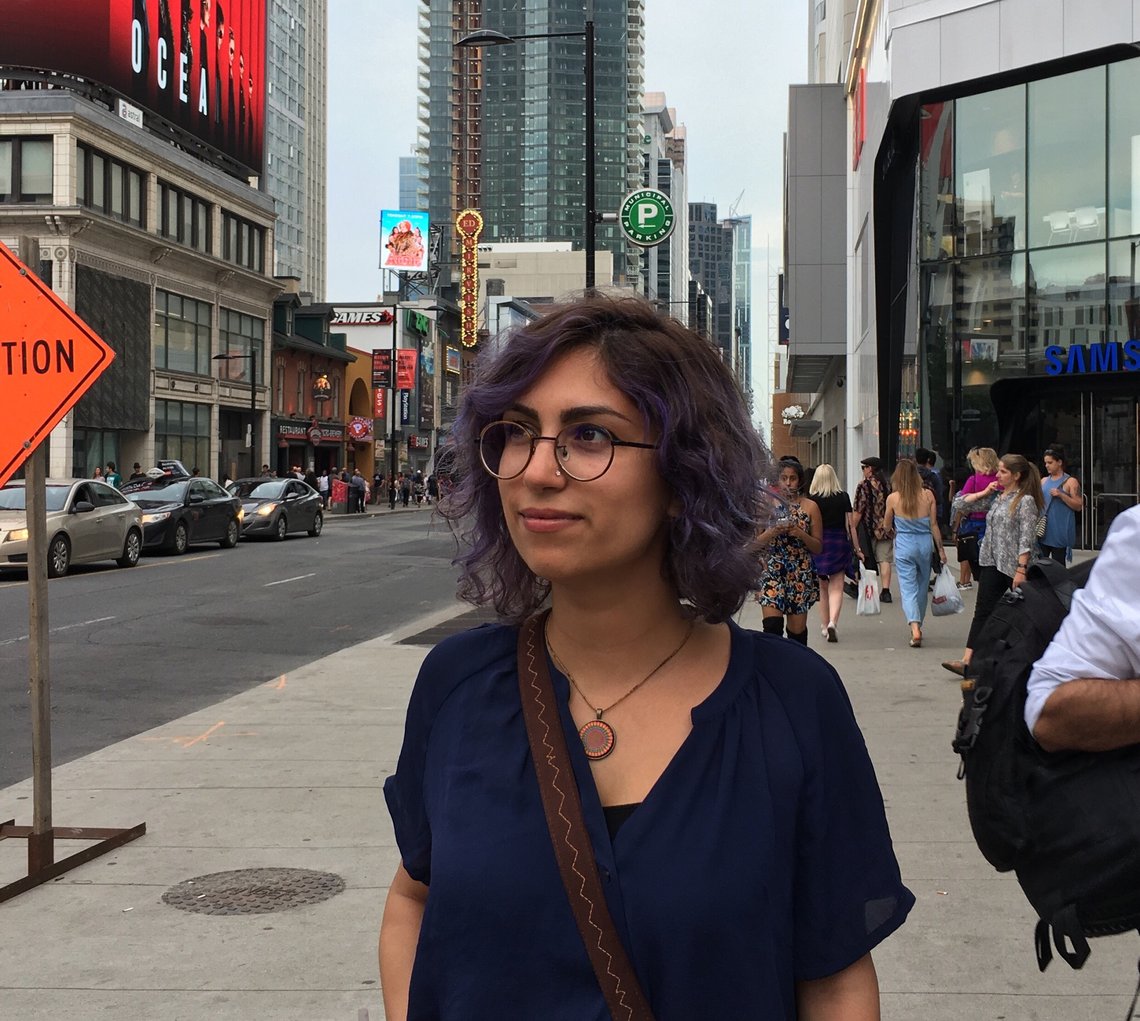June 6, 2018
Class of 2018: Dorsa Sobhani's long and dangerous road to convocation

There were times in Dorsa Sobhani’s life when going to prison seemed more probable than going to university. On June 6, when she crosses the stage in the Jack Simpson Gym to receive her Bachelor of Social Work parchment, it will be the realization of a generational and personal dream that has been nurtured for years.
Sobhani’s family comes from Iran. They are members of the Bahá'í faith, which has been relentlessly persecuted by the Iranian Regime since the 1979 revolution. In the aftermath, the Iranian “cultural revolution” saw a widespread purge of academics and students including people of the Bahá'í faith.
Sobhani’s mother was one of those affected. At the age of 17 she was taken from high school and thrown in prison for three years. When she graduated she found that Bahá'ís were basically banned from attending post-secondary school, so her dream of going to university seemed like it was over.
Prison
Things didn’t change much for Sobhani, who found herself in the same situation when she graduated from high school. Showing incredible bravery, she became an activist and began protesting and lobbying — drawing attention to the plight of Bahá'ís and women in Iran. Perhaps unsurprisingly, she was arrested and spent a month in jail. Due to the high public profile she created with her political action, she says she wasn’t physically tortured, but she was psychologically tortured with 28 days in solitary confinement.
She was released with the understanding that if she dared to speak out again, in any way, shape or form over the next five years, she would be thrown in jail for a year or longer. Of course it wasn’t long before someone manufactured a transgression. Luckily when the secret police showed up to arrest her she wasn’t home.
Escape to Turkey
Unable to return home, even to collect her belongings, Sobhani fled to Turkey taking a series of buses to avoid airports and train stations, which are closely monitored by the police. Her family eventually joined her, and they suddenly found themselves starting a new life as refugees.
There were no agencies to support newcomers in the Turkish town of Denizli, where she found herself. Life is difficult for people from a different culture who don’t speak the language. However, Sobhani learned Turkish, then, amazingly, helped to create a grassroots newcomer support group with her friends. They named it Afra, the Farsi word for maple tree. Her group helped people with things like official paperwork, finding housing, reading labels in shops, and translating doctor’s appointments. This experience was formational in her choice of social work.
“I think my interest in social work grew a lot more with that experience,” Sobhani says. “I realized that this was a field that I wanted to learn more about and perhaps pursue at a professional level.”

Dorsa Sobhani has relocated to Toronto to pursue her master’s in women’s mental health.
A new life in Canada
Eventually her family was given immigration status to Canada, moving to Edmonton where, almost unbelievably, Sobhani found that she was able, at last, to go to school. She almost immediately applied to do a social work diploma at (then) Grant MacEwan College, but from the start had her sights on doing her university degree at the University of Calgary.
“When I was doing my diploma. I came to U of C to see the campus because this was something I wanted so bad!” says Sobhani. “I remember when I was just starting my diploma, thinking, “Am I going to get accepted to this program? When I applied, even though I had good marks … you know when you don't believe that you're allowed to do something and then it happens? You're really not believing it … like, is this really happening? Even now I don’t quite believe that I have my bachelor’s education because it was something that I had to fight for.”
Importance of convocation
Sobhani seems to have savoured every moment of the experience, in and out of the classroom. She was an active member of the Social Work Students’ Association, and before the official convocation ceremony she’ll be honoured with an award recognizing her contributions for political activism — the Clarice Chodak Recognition of Excellence in Social Action award. The irony isn’t lost on her.
“It's still sometimes challenging [to be politically active here] because I’m marginalized here, too, as an immigrant and a woman of colour. But at least I can speak up. Just like having the right to actually speak up. I may not be heard, but I can speak and not be arrested for it. So it's a huge difference.”
After finishing her classes Sobhani moved to Toronto, where she’s enjoying the energy of the “Big Smoke” and working in a women’s shelter. This fall she’ll begin her master’s education at the University of Toronto, specializing in women’s mental health. But she’ll be flying back to Calgary this week to graduate, because when you’ve been through what she and her family have been through, convocation isn’t something that you take for granted.
“I don't know,” says Sobhani with obvious emotion. “I feel like it's very emotional. I have this feeling that I'm really happy and excited but also I don't feel like it's real. It feels surreal for me to finish my bachelor's but I also feel bad, in a way, because I know a lot of talented people in Iran who can't go to university. I feel like, this is not fair. You know, it's like I ran away and I got what I wanted. So, it's kind of like difficult, but I'm also happy.”




































































